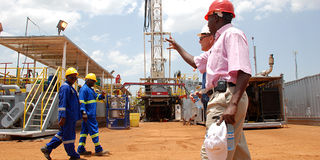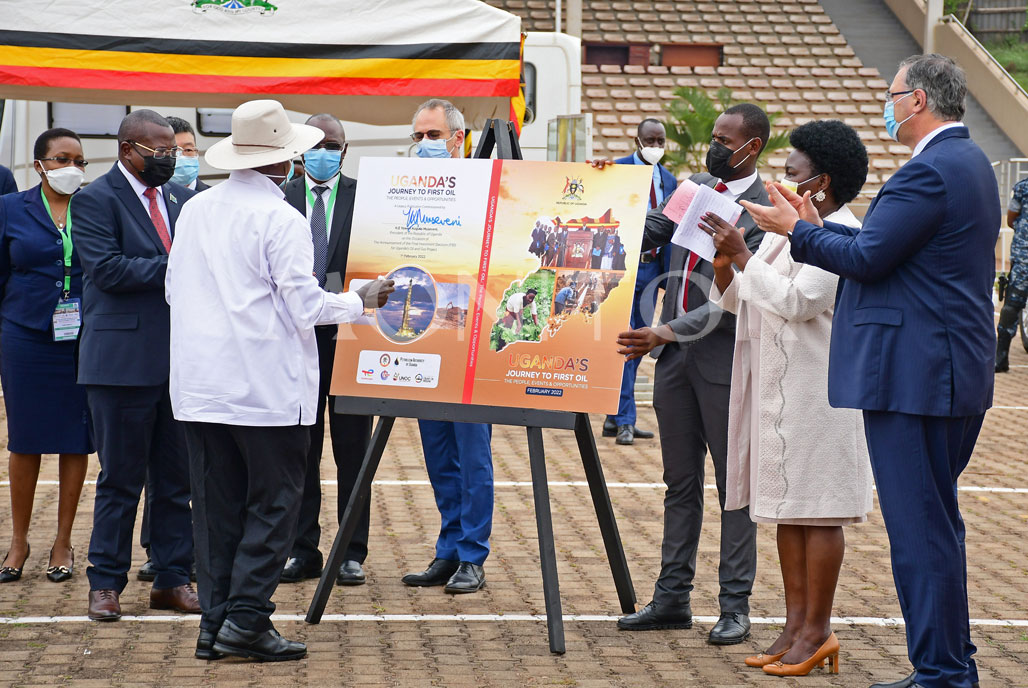Prime
Govt to study needs resulting from oil-related activities

Oil-related activities are expect to create demand for a number services and products, among which include housing and agricultural products. PHOTO | FILE
What you need to know:
- The study, which is expected to be completed by May, will assess potential needs in the areas of agricultural products and housing.
The Petroleum Authority of Uganda has commissioned a study that seeks to assess opportunities and needs in Albertine Graben and East African Crude Pipeline Project areas.
The study, which is expected to be completed by May, will assess potential needs in agricultural products and housing.
The Petroleum Authority of Uganda has already signed a memorandum of understanding with private sector members to conduct the study.
Speaking at the weekend, Mr Ernest Rubondo, the Petroleum Authority of Uganda executive director, said the study is critical to understand other needs that are expected to come up as a result of oil and related projects.
The oil and gas sector is expected to generate up to $ 8b (Shs27.5 trillion) for Uganda in addition to the earnings from national content.
National content, according to Mr Rubondo is expected to be 40 per cent of the investments in the oil sector, earning Ugandans between Shs15b and Shs20b.
Uganda will by 2025 be earning from the sale of crude oil, which is expected fetch between $1 (Shs3.4b to $2b (Shs6.8b) annually.
However, the earnings are expected to be determined by the price of international crude oil.
Ms Mona Muguma Ssebuliba, the aBi Finance chief executive officer, said the study seeks to harness agribusiness opportunities in Uganda’s oil and gas sector, which will consequently contribute to improvement of household incomes and employment.
For this to be exploited, she said, the agribusiness value chain actors must invest in on-farm post-harvest handling, processing, and logistics to meet the required quality, quantity, or timely delivery of agricultural products.
Ms Ssebuliba also noted that enabling investment in agribusiness will, however, depend on the availability of appropriately structured financing to guarantee a competitive return on investment while meeting consumers’ quantity, quality, and timely requirements.
Ms Dorcas Okalany, the Ministry of Lands, Housing and Urban Development permanent secretary, said the oil and gas sector activities are expected to create pressure on housing, urging stakeholders to consider the possibility of establishing accommodations for their workers.
Such an arrangement, she said, can either take temporary or permanent ownership.
Oil activities are expected to result into demand for goods and services, especially for industrial and oil workers.
“Indirectly there is what we call housing for induced workers along both the upstream and lower stream of the major gas and oil activities. This is an investment opportunity for the real estate sector players in the country which will require detailed plans for investment within the Albertine as well as the infrastructural corridors like the oil pipeline,” Ms Okalany said.
Housing
According to Ms Dorcas Okalany, the Ministry of Lands, Housing and Urban Development permanent secretary it is important that housing projects in the areas that border oil districts such as Nwoya, Kikube, Mubende, Sembabule and Rakai are supported given their strategic importance in linking government services.
However, she noted, all housing projects must be aligned to the National Housing Policy, 2016, which emphasises adequate housing for all as well as the district investment plan.





